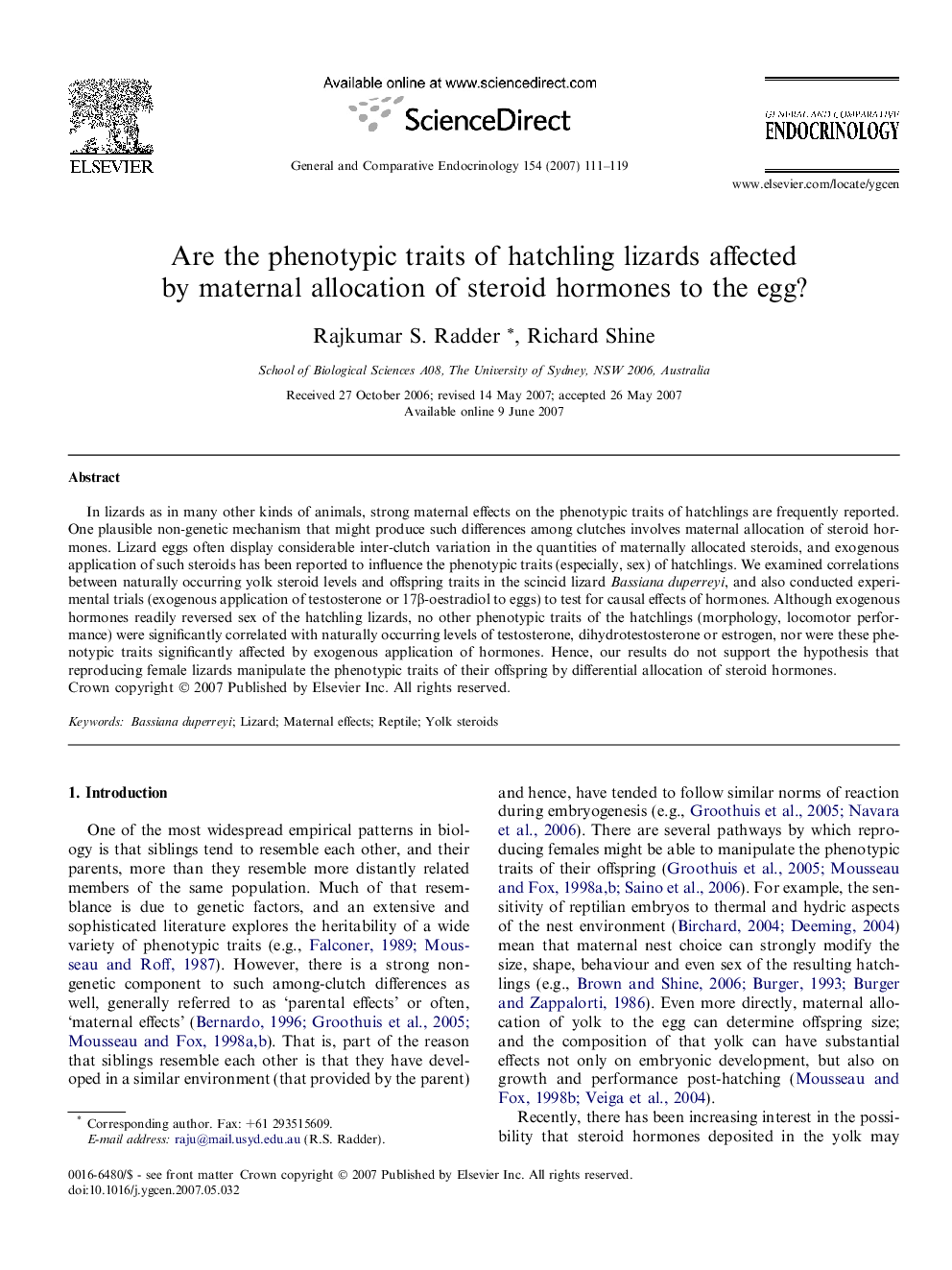| Article ID | Journal | Published Year | Pages | File Type |
|---|---|---|---|---|
| 2801678 | General and Comparative Endocrinology | 2007 | 9 Pages |
In lizards as in many other kinds of animals, strong maternal effects on the phenotypic traits of hatchlings are frequently reported. One plausible non-genetic mechanism that might produce such differences among clutches involves maternal allocation of steroid hormones. Lizard eggs often display considerable inter-clutch variation in the quantities of maternally allocated steroids, and exogenous application of such steroids has been reported to influence the phenotypic traits (especially, sex) of hatchlings. We examined correlations between naturally occurring yolk steroid levels and offspring traits in the scincid lizard Bassiana duperreyi, and also conducted experimental trials (exogenous application of testosterone or 17β-oestradiol to eggs) to test for causal effects of hormones. Although exogenous hormones readily reversed sex of the hatchling lizards, no other phenotypic traits of the hatchlings (morphology, locomotor performance) were significantly correlated with naturally occurring levels of testosterone, dihydrotestosterone or estrogen, nor were these phenotypic traits significantly affected by exogenous application of hormones. Hence, our results do not support the hypothesis that reproducing female lizards manipulate the phenotypic traits of their offspring by differential allocation of steroid hormones.
